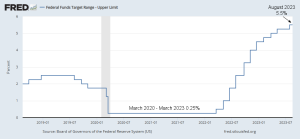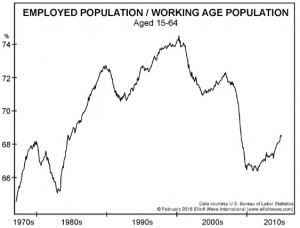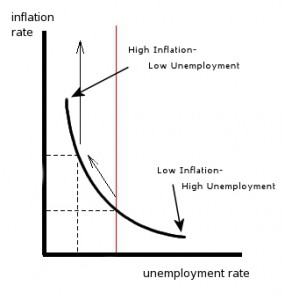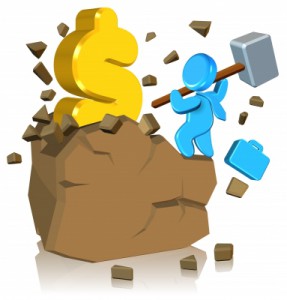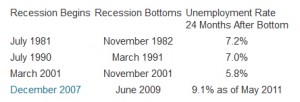Why Has The FED Been Raising Interest Rates? The Federal Reserve (Fed) started raising interest rates in March 2022 in an effort to combat inflation. As of the end of July 2023, the Fed's target rate limit is 5.5%, the highest level in 15 years. There are a few reasons why the Fed is raising interest rates so aggressively. First, inflation was at a 40-year high. In June 2022, the Consumer Price Index (CPI) rose 9.06% year-over-year, the fastest pace since December 1981. This means that the cost of goods and services was rising rapidly, which was eroding the purchasing power of consumers and businesses. Second, the economy is still strong. The unemployment rate posted a 50-year … [Read more...]
Former Treasury Secretary Larry Summers on the Current Inflation Situation
Larry Summers was the 71st United States Secretary of the Treasury from 1999 to 2001 under Bill Clinton and Obama’s head of the National Economic Council from 2009 to 2010 and the president of Harvard University (2001–2006), so he might know a little about inflation. Recently he is quoted as saying that although there are some “transitory” components of the current inflation situation, we are also “moving towards higher entrenched inflation”. One of the factors he mentioned was “expectations,” which we have discussed in previous articles. When expectations of higher inflation start, it becomes almost a “self-fulfilling prophesy” because employees fight for higher wages expecting their … [Read more...]
A Very Weak Economic Recovery
By Elliott Wave International Editor's note: The following article is excerpted from Elliott Wave International's new free report, "U.S. Economy Still on Life Support." For years, the government has manipulated its unemployment statistics to line up with its claim that the economy has recovered strongly. But that's not ALL the government is hiding from you. From foodstuffs, to crude oil prices, to GDP, the numbers and analysis reported by the government and mainstream financial press are misleading at best, downright falsehoods at worst. Get the hidden truth -- click here to read the full two-part report now >> For years, the government has been manipulating its unemployment … [Read more...]
What Causes Unemployment?
I recently received the following question about unemployment from a gentleman in Tanzania and I thought it was a good question and I would share the answer with you. What Causes Unemployment? I have been thinking on that situation of unemployment. Why does the rate of unemployment increase day after day? Does it mean that people have decreased the rate of thinking on creating jobs or there is any other reason? ~ Lioba from Dar-es-Salaam Tanzania. Here is my Response: Lioba, That is a very good question. Unemployment is a function of how efficient the marketplace is. In a purely agricultural economy, there is no unemployment, everyone has to work, if they don't work they don't eat. … [Read more...]
What is the Phillips Curve?
The Nature of the Phillips Curve The Phillips Curve is an economic concept was developed by Alban William Phillips and shows an integral relationship between unemployment and inflation. Phillips began his quest by examining the economic data of unemployment rates and inflation in the United Kingdom. He tracked the data over business cycles, and found wages increased at a slow rate when unemployment was high, and faster when the unemployment rate dropped. Business cycles are basically economic activity over a lengthy period of time. Originally, business cycles were thought to be predictable, but they have since proven themselves to be irregular in the areas of duration, frequency and … [Read more...]
Could a Raise in Minimum Wage Trigger Inflation?
Here at Inflation Data we believe that all other things being equal the primary cause of inflation is an increase in the money supply, i.e. "too much money chasing too few goods." But raising the minimum wage may cause other distortions that will have an effect on the economy so that one simple stroke of a pen can still have a major impact. ~Tim McMahon, editor The Law of Unintended Consequences When the Government increases the minimum wage that employers need to pay to their employees, does it cause more problems later? The Government speaks of a raise as a good thing for the economy in order to boost sales (through more disposable income for the poor) and help low-income families pay … [Read more...]
Recession Watch- Where are We Now?
Recessions are generally caused by a shrinking money supply and/or an increase in demand for cash. In the last two years the M1 money supply has grown by 40% and still the economy is weak, the unemployment rate is high... basically no recovery. Why? In this article Terry Coxon discusses the slow recovery and how it compares to previous recessions. ~Tim McMahon, editor Economically Sleepwalking Terry Coxon, Senior Economist Until the Great Depression of the 1930s, the average length of a recession was 21 months. The misery that began in October 1929 lasted five times that long – 105 months.... the government pursued an array of policies to prevent prices from falling, which had the … [Read more...]
Credential Inflation: Bachelor’s Degree Not Enough
In today's tumultuous economic climate, when we hear the term "inflation" we think money and a failing economy our minds immediately turn to expenses, debt, and money woes. Rarely, however, do our minds turn to college degrees and job prospects. On July 22, 2011 Laura Pappano from The New York Times published an article titled The Master's as the New Bachelor's. Introducing into the public mindset the concept of "credential inflation" and "degree inflation", this article has caused quite the hoopla in the academic world and many a panic attack among 20 somethings throughout the country. Pappano suggests that there is a certain amount of credential inflation occurring throughout the job … [Read more...]
The Primary Precondition of Deflation
By Robert Prechter, CMT Elliott Wave International The following was adapted from Bob Prechter’s 2002 New York Times and Amazon best seller, Conquer the Crash – You Can Survive and Prosper in a Deflationary Depression. Deflation requires a precondition: a major societal buildup in the extension of credit (and its flip side, the assumption of debt). Austrian economists Ludwig von Mises and Friedrich Hayek warned of the consequences of credit expansion, as have a handful of other economists, who today are mostly ignored. Bank credit and Elliott wave expert Hamilton Bolton, in a 1957 letter, summarized his observations this way: In reading a history of major depressions in the U.S. … [Read more...]
What is so bad about Deflation?
By Tim McMahon The average annual inflation rate dropped again this month. At a monthly rate of -1.01% October's drop was touted as "the largest monthly drop on a seasonally adjusted basis since 1947 when the Bureau of Labor Statistics first started tracking seasonal adjustments" and it brought the annual inflation rate off its highs and down to a more reasonable 3.66%. November's monthly rate was almost twice as large at but it was hardly mentioned in the news. This month the annual inflation rate has dropped down virtually zero-- 0.09% with a monthly drop slightly larger than the one two months ago. Just a few months ago the annual inflation rate was 5.6% and now it is … [Read more...]

